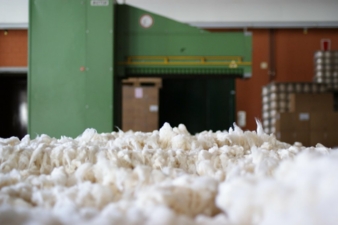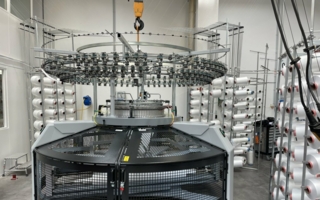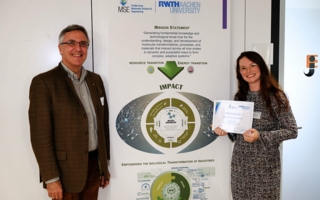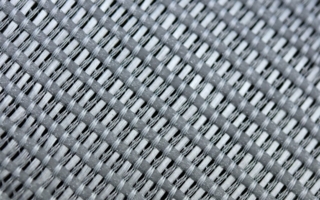09/12/2019 – Bremen Cotton Exchange — auf Deutsch lesen
Elasticity without Elastane
The new development is appearing under the Natural Stretch brand and is offered without the use of spandex.
Blends of polyester and cotton have been used in the manufacture of clothing for many years. They are often combined with elastane to accentuate fit and enhance comfort. This may well change in the not too distant future. This is because US research company Cotton Incorporated, Cary, North Carolina, has unveiled a stretchy apparel textile from 100 percent cotton.
Natural Stretch
The new development is appearing under the Natural Stretch brand and is offered without the use of spandex. According to a statement released by the supplier, the textile offers the same levels of elasticity and comfort to which consumers have become accustomed.
It is a well-known fact in the industry that natural cotton fabrics have an intrinsic elasticity of around 3 to 6 percent. The material developed by Cotton Incorporated is endowed with added stretch created by a special mechanical manufacturing process.
Modern fabrics engineering makes it possible
The material offers high-comfort stretch properties combined with the naturalness and softness of cotton. In addition, it loses none of its elasticity during use. The fabrics can be made into dress shirts and blouses, denim jeans and trousers as well as skirts. According to Cotton Incorporated, it already has licensees manufacturing and selling textiles designed with Natural Stretch Technology in Peru, Hong Kong, China, Taiwan, Thailand, South Korea and Indonesia.
Another innovation may also emerge as a stimulus for change
The Commonwealth Scientific Industrial Research Organisation (CISRO), Canberra, Australia, is currently working on cultivating cotton seed and plants whose fibres offer many of the properties of manmade fibres such as stretch, crease resistance and waterproofness without compromising on the natural properties of cotton. Compared to man-made fibres such as polyester, cotton has the added advantage of being natural, renewable and bio-degradable.





